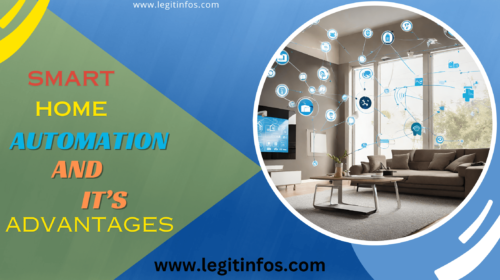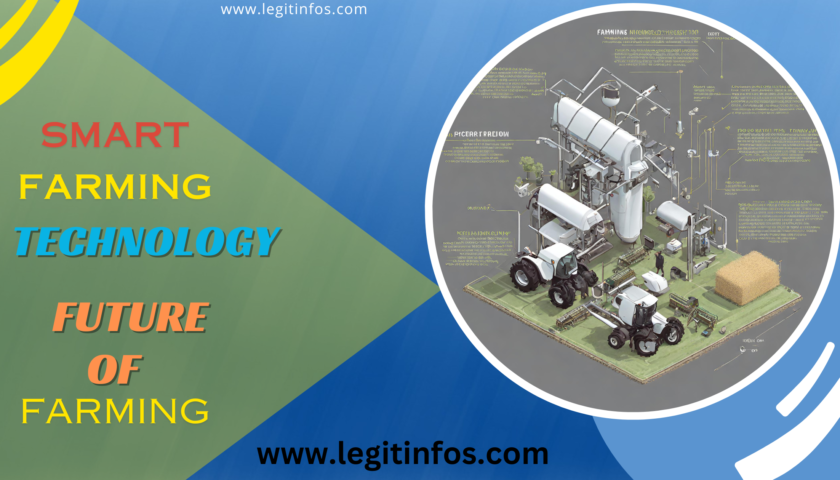In today’s world, our home is not just a place to live but an extension of our lifestyle. The future of home living has become smarter than ever. imagine getting home and our arrival is been sensed, lighting are been adjusted, music are been played to your preference without a single touch. In this blogpost I will talk about the advantage of home automation systems.
With the integration of this technology, smart homes are improving the way we live, offering great comfort and control at our fingertips. As I talk about these innovative systems, you will get to know how they adapt to your routines, anticipate your needs, and rise your quality of life.
Understanding smart home automation systems
Smart home automation systems comprise of a range of technologies that enables the automatic and remote control of household appliances and features. These systems use various devices and sensors to help home owners monitor and manage their homes from anywhere. From smart thermostats and lighting to security cameras and voice-controlled assistants, the combination of these components forms the idea of a smart home. As technology continues to advance, the capabilities of smart home automation systems are expanding, offering a high level of convenience and efficiency.
The central hub of a smart home is often a control panel or mobile app that provides users with a single interface to interact with all connected devices. This centralized control simplifies the management of various systems, allowing users to customize settings, create schedules, and receive real-time notifications. Whether it’s adjusting the temperature, monitoring energy usage, or activating security features, smart home automation puts the power of home management at your fingertips.
As the demand for smart home technology grows, the market is witnessing a large number of innovative products and solutions designed to enhance the way we interact with our living spaces. With the integration of this technology, smart homes are improving the way we live, offering a high level of comfort and control at our fingertips.
Advantages of smart home automation
The advantages of smart home automation systems goes far beyond convenience. One of the most interesting benefits is enhanced security. Smart home security systems provides advanced features such as motion detection, video surveillance, and real-time alerts, enabling home owners to monitor and protect their properties with greater precision and responsiveness. With the ability to remotely access security cameras and lock or unlock doors, smart home automation delivers peace of mind and an increased sense of safety.
In addition to security, smart home automation contributes to significant energy efficiency gains. By leveraging smart thermostats, lighting controls, and energy monitoring devices, home owners can optimize their energy usage and reduce utility costs. These systems enable automated adjustments based on occupancy, ambient light, and time of day, ensuring that energy is utilized more efficiently. The result is not only lower energy bills but also a reduced environmental footprint, as smart home technology fosters sustainable living practices.
Another advantage of smart home automation is the smooth integration of entertainment and lifestyle features. Whether it’s streaming music throughout the house, setting the ambiance with customizable lighting, or automating the operation of home appliances, smart home technology raises the overall living experience. The convenience of being able to control these aspects remotely, whether from within the home or while away, adds a new angle of flexibility and enjoyment to daily routines.
The growth of smart home technology
The rapid increase of smart home technology indicates a larger trend towards digital integration within the home environment. As we always seek ways to streamline and enhance our lifestyles, smart home automation has come as a solution. The evolution of Internet of Things (IoT) devices and wireless connectivity has facilitated the seamless interconnectivity of smart home components, enabling a responsive living experience.
Moreover, the advancements in artificial intelligence and machine learning has also contributed to the quality of smart home automation systems. These technologies enable devices to learn user preferences, anticipate patterns, and adapt to changing circumstances, thereby optimizing the user experience. The result is a more personalized approach to home management, where the home itself becomes tuned to the needs of its occupants.
The growth of smart home technology is also reflected in the expanding ecosystem of compatible devices and platforms. From voice-activated assistants to smart appliances and interconnected ecosystems, the diversity of offerings allows homeowners to tailor their smart home setups to their specific requirements. This diversity creates a dynamic and adaptable environment, where new functionalities and integrations continue to improve the smart home experience.
How smart home automation systems work
At the core of smart home automation systems is the smooth communication and interaction between interconnected devices. This communication is facilitated through wireless protocols such as Wi-Fi, Bluetooth, which enable devices to exchange data and commands. Central to this communication network is the hub or control center, which serves as the center for coordinating the activities of various devices.
Smart home devices are equipped with sensors and that enable them to respond to changes in their environment. Whether it’s detecting motion, measuring temperature, or monitoring energy usage, these sensors provide the data necessary for the automation and control of devices. In turn, actuators enable devices to carry out specific actions, such as adjusting the thermostat, dimming lights, or locking doors, in response to user inputs or automated triggers.
The intelligence of smart home automation systems lies in their ability to process data, analyze patterns, and execute pre-defined actions based on rules or user commands. This intelligence is often augmented by machine learning algorithms, which enable devices to adapt and optimize their behavior over time. By continuously learning from user interactions and environmental cues, smart home automation systems evolve to better meet the needs and preferences of users.
Integrating smart home technology into everyday life
The integration of smart home technology into our everyday life presents a shift in the way we interact with our living spaces. Beyond the normal convenience of remote access and automated controls, smart home automation creates a more harmonious and responsive relationship between individuals and their homes. By smoothly arranging the various elements of home living, smart home technology empowers users to focus on what truly matters, whether it’s spending quality time with loved ones, pursuing personal interests, or simply enjoying a comfortable environment.
Furthermore, the adaptability and customization offered by smart home automation systems forms a diverse lifestyles and preferences. Whether it’s creating personalized lighting scenes, automating household chores, or setting up custom routines, smart home technology allows individuals to set their living spaces to align with their unique needs and routines. This act of making something unique give rise to a sense of empowerment and autonomy, as homeowners are no longer bound by the limitations of traditional home management.
As smart home technology becomes more embedded in our daily lives, it also creates a greater sense of interconnectedness and accessibility. The ability to remotely monitor and control various aspects of home living promotes a more fluid and responsive approach to managing the home environment. Whether it’s adjusting settings while away from home, receiving real-time alerts, or integrating smart home devices with other digital platforms, the interconnected nature of smart home technology facilitates a more cohesive and integrated living experience.
Smart home security and safety features
One of the major concerns of homeowners is the security and safety of their living spaces. Smart home automation systems address these concerns by offering a lots of security features that gives protection and provide peace of mind. From advanced surveillance cameras and motion sensors to smart locks and alarm systems, smart home security solutions offer comprehensive coverage and great security against potential threats.
With the aid of mobile apps and cloud-based platforms, homeowners can access live video feeds, receive alerts, and manage security settings from anywhere with an internet connection. This smooth accessibility enables users stay connected to their homes and react quickly to any security events.
Energy efficiency and cost savings with smart home automation
Smart home automation plays a vital role in promoting energy efficiency and reducing utility costs. By using smart thermostats, lighting controls, and energy monitoring devices, homeowners can optimize their energy usage and minimize wastage. These devices enable automated adjustments based on occupancy, ambient light, and time of day, ensuring that energy is utilized more efficiently and judiciously.
In addition to the benefits of energy conservation, smart home automation contributes to cost savings by minimizing energy expenditure. By intelligently managing heating, cooling, and lighting, homeowners can curtail their utility bills while minimizing their environmental impact. This cost-effective approach to energy management aligns with sustainable living practices and offers long-term economic benefits.
Furthermore, smart home automation systems provide real-time insights into energy consumption patterns, enabling users to identify opportunities for further optimization. By tracking energy usage and implementing desired schedules and automation routines, homeowners can tune their energy management strategies, leading to greater efficiency and savings.
Choosing the right smart home automation system
Selecting the right smart home automation system needs a careful consideration of various factors, including compatibility, functionality, and user experience. It’s essential to assess the specific needs and preferences of your household to know the most suitable smart home solutions that aligns with your lifestyle. Whether it’s prioritizing security features, energy management, or entertainment integration, understanding your requirements is important in making an informed decision.
Compatibility and interoperability are key considerations when building a smart home ecosystem. Ensure that the devices and platforms you choose are compatible with one another and can be smoothly integrated into a system.
Functionality and ease of use are also important in evaluating smart home automation systems. Look for intuitive interfaces, robust feature sets, and reliable performance to ensure a seamless and user-friendly experience. Additionally, consider the long-term support and updates provided by manufacturers and service providers, as ongoing maintenance and improvements are essential for the continued efficacy of smart home systems.
Conclusion
As we talk the importance of smart home automation systems, it has become evident that the future of home living is being re-defined by technology. With the ability to adapt to our routines, anticipate our needs, and elevate our quality of life, smart homes offer great comfort and control. From enhanced security and energy efficiency to the convenience of remotely controlling appliances, the advantages of smart home automation are improving the way we interact with our living spaces.



